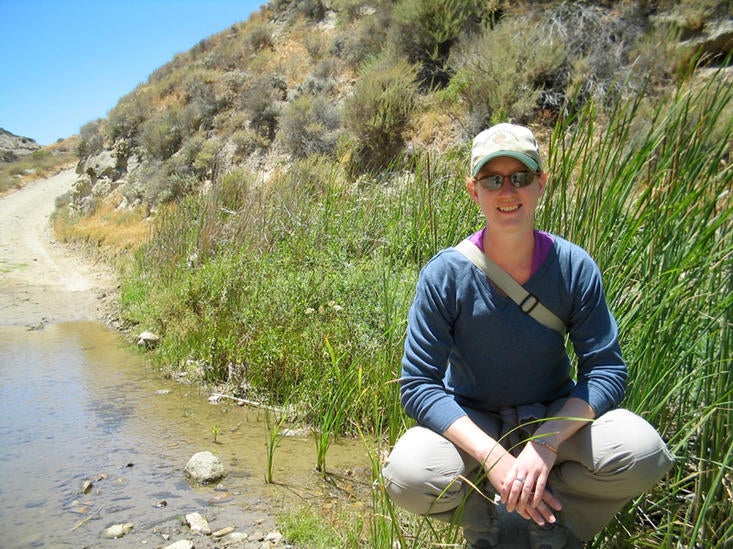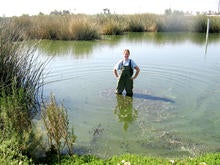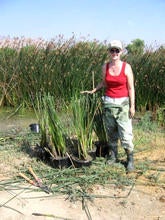Jennifer Henke
2008 Scholarship Recipient
Jennifer Henke has long been fascinated by aquatic communities. Growing up in northern Alabama, she spent much of her time outdoors, playing in the woods and fishing. She received her Bachelor’s degree in biology at the University of Alabama in 2001. After earning her Master’s in entomology at the University of Georgia in 2005, she moved to Riverside to obtain her Ph.D. in entomology at the University of California, Riverside.
In southern California, wetlands are created primarily for wastewater management and mitigation. While these water sources have had the added benefit of creating habitats for migrating waterfowl, they also provide suitable habitat for pestiferous insects such as biting midges and mosquitoes.
Jennifer studies environmental factors that affect wetland invertebrate food webs with an emphasis on how to use this knowledge to biologically-control mosquitoes. The Harry S. Smith Biological Control Award allowed her to present a portion of her research in a talk entitled “Better Control of Mosquitoes through the Use of Native Larvivorous Fish” at the Society of Wetland Scientists meeting in May 2008 located in Washington, D.C.
Jennifer’s research focused on the use of a native larvivorous fish, the arroyo chub, to replace the exotic and invasive mosquito fish which has historically been widely used for mosquito control. The arroyo chub is a species of special concern in California as it is restricted to 4 watersheds within the southern portion of the state. Use of this native fish not only has the advantage of controlling mosquitoes, but also provides a novel way to help preserve a rare native California species.
Upon completion of her Ph.D. at UC Riverside, Jennifer plans to be become a professor and continue her research, combining ecology, conservation biology, and biological control nuisance pests.


